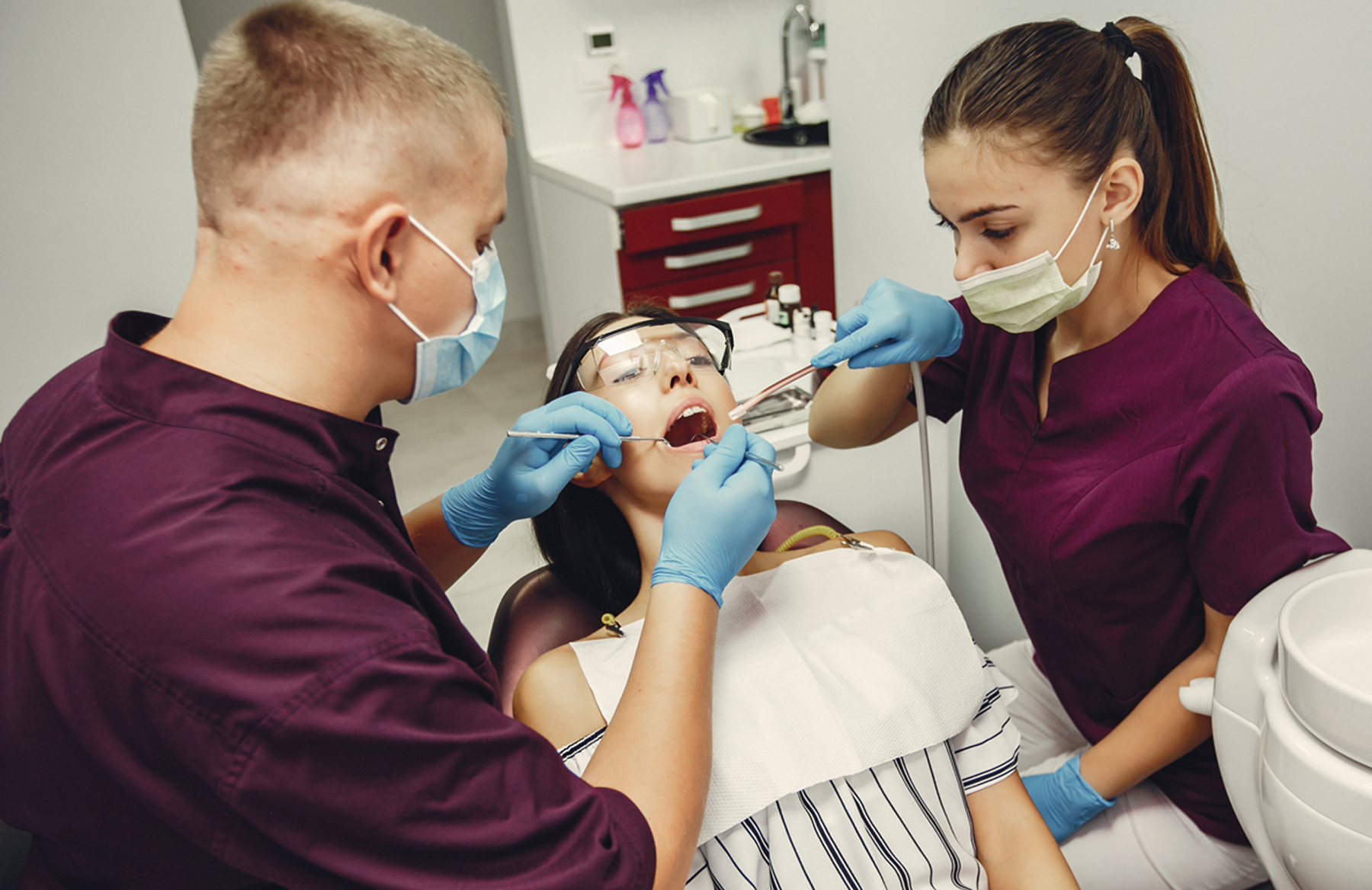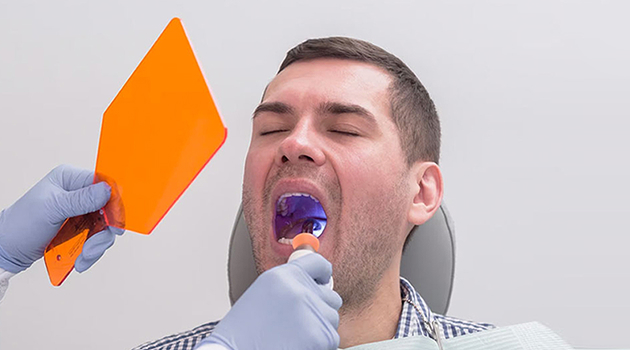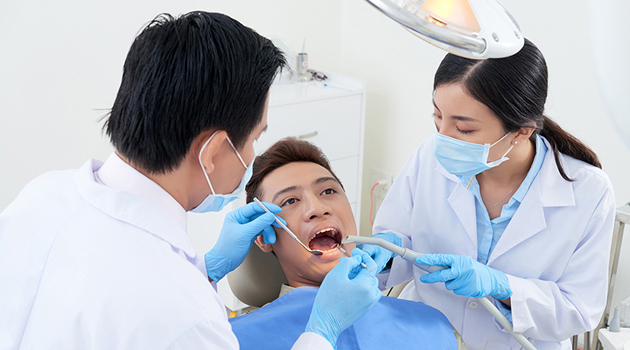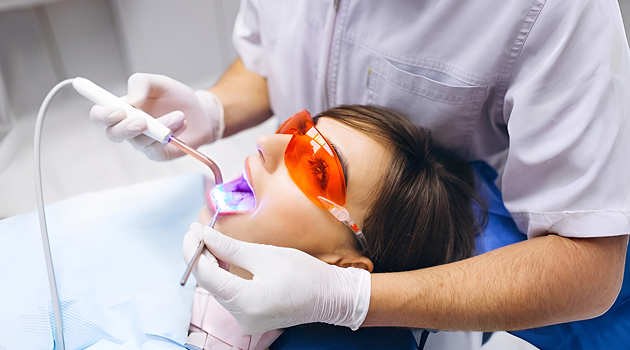Boynton Beach Dentist — Surgical Before and After Instructions
Healing well after any dental procedure requires care, patience, and attention to detail. Your trusted Boynton Beach dentist provides this extended guide to help you feel confident in your recovery process. Every patient is unique, but the principles of rest, hygiene, and follow-up are key for all.
Why After-Care Matters
Effective after-care plays a vital role in healing. It helps control bleeding, reduce swelling, prevent infection, and support your body’s natural repair process. Stick close to these instructions, and you’ll be back to feeling your best soon.

- Control Bleeding Bite lightly on the gauze pad provided for 30–60 minutes. If bleeding persists, replace with fresh gauze—and bite again. Try to not spit or use a straw, as this can dislodge the healing clot.
- Manage Swelling Apply ice packs for 10–20 minutes, then remove them, during the first 24–48 hours. Keep your head elevated at rest.
- Eat Smart, Stay Soft Stick to soft, cool, or lukewarm foods, such as yogurt, porridge, soup, mashed potatoes, or smoothies—especially during the first few days. Avoid hot, spicy, crunchy, carbonated beverages or alcohol.
- Practice Cautious Hygiene No brushing or rinsing the surgical area for the initial 24 hours. After that, gently wash with warm salt water after meals, or use a syringe if provided.
- Rest & Activity Maintain light physical activity for 1–2 days post-surgery. Avoid straining, bending, or engaging in strenuous movements that may disrupt the healing process.
- Handle Medications Properly Take prescribed medications, including antibiotics or pain relievers, as directed. Over-the-counter options, such as ibuprofen or acetaminophen (Tylenol), can help manage pain. Avoid driving if sedated or using opioids.
Special Offers from Your Local Dentist in Boynton Beach, FL
Specific Instructions for Common Procedures

Tooth Extractions / Wisdom Tooth Removal
- Protect the clot: refrain from spitting, smoking, or using straws for at least 24–72 hours.
- Bleeding control: use cold compresses, apply gauze pressure, or moisten a tea bag as needed.
- Swelling and bruising may peak on day 2 or 3, then improve.
- Resume eating soft food as comfort improves. Gentle oral hygiene after 24 hours.
Dental Implant Surgery
- Swelling and discomfort are normal; ice and head elevation can help.
- Keep the area undisturbed—no brushing near the site, spitting, or straws initially.
- Stay hydrated and maintain a soft diet; take antibiotics and pain medications as instructed.
- Follow the provided post-operative care instructions and attend all scheduled follow-up appointments.


Gum Surgery / Periodontal Procedures
- Apply ice for the first day; avoid probing sutures or the treated area.
- Gently brush surrounding areas, avoid smoking and straws. Follow-up as scheduled.
Crowns, Fillings & Root Canal Treatments
- Avoid chewing until numbness fades—especially for children.
- Temperature sensitivity and gum soreness are typical and resolve over time.
- For temporaries: avoid sticky/crunchy foods; floss gently around them.
- After a root canal, avoid chewing until restoration is complete.

Special Guidance for Children and Seniors
Children often heal quickly, but they may bite their lip or cheek while still numb. Encourage soft, cool foods and supervise their oral hygiene. Avoid giving them straws or crunchy snacks until their dentist approves.
Seniors may take longer to heal, especially if on medications like blood thinners. They should follow instructions carefully, rest longer, and keep follow-up visits without delay.
Lifestyle and Healing Habits
Signs That Need Immediate Attention
While most healing follows a predictable path, you should contact your Boynton Beach Dentist or a dental clinic near you if you notice:
- Persistent heavy bleeding beyond 24 hours
- Severe pain not controlled by prescribed medication.
- Swelling that worsens after day three.
- Fever, chills, or foul taste in the mouth
- Loose sutures or implants
Prompt action can prevent complications and keep your healing on track.
Long-Term Care After Surgery

Your Comfort, Our Commitment
Surgical recovery is not just about healing—it’s about protecting your long-term dental health. By following these instructions carefully, you’ll reduce complications and enjoy a quicker return to comfort.
Trust the experience and compassionate care provided at Hugh B Rosenblatt, DMD, PA - Boynton Beach Family Dentistry, where your smile and recovery always come first.
Meet Our Trusted Dentist in 33426
Accepted PPO Insurance Plans at Our Boynton Beach Dental Office
Frequently Asked Questions
Swelling usually peaks between 48 and 72 hours, then gradually decreases. Using ice early helps reduce it.
You can brush normally after the first 24 hours, but avoid brushing directly on the surgical site until your dentist says it’s safe.
Apply firm pressure with gauze or a damp tea bag for 30 minutes. If heavy bleeding does not stop beyond 24 hours, contact a dental clinic near you right away.
Many patients feel ready within two to three days. For more complex procedures, allow extra recovery time.
Yes. Bruising on the cheeks or jaw is common and typically fades within one week.














